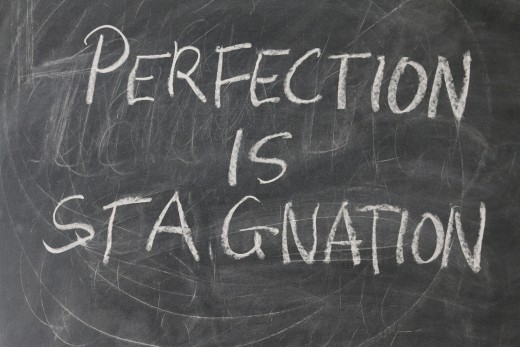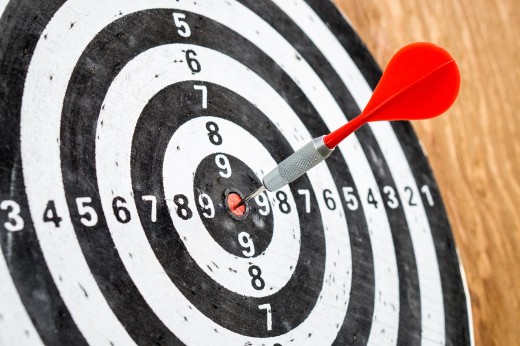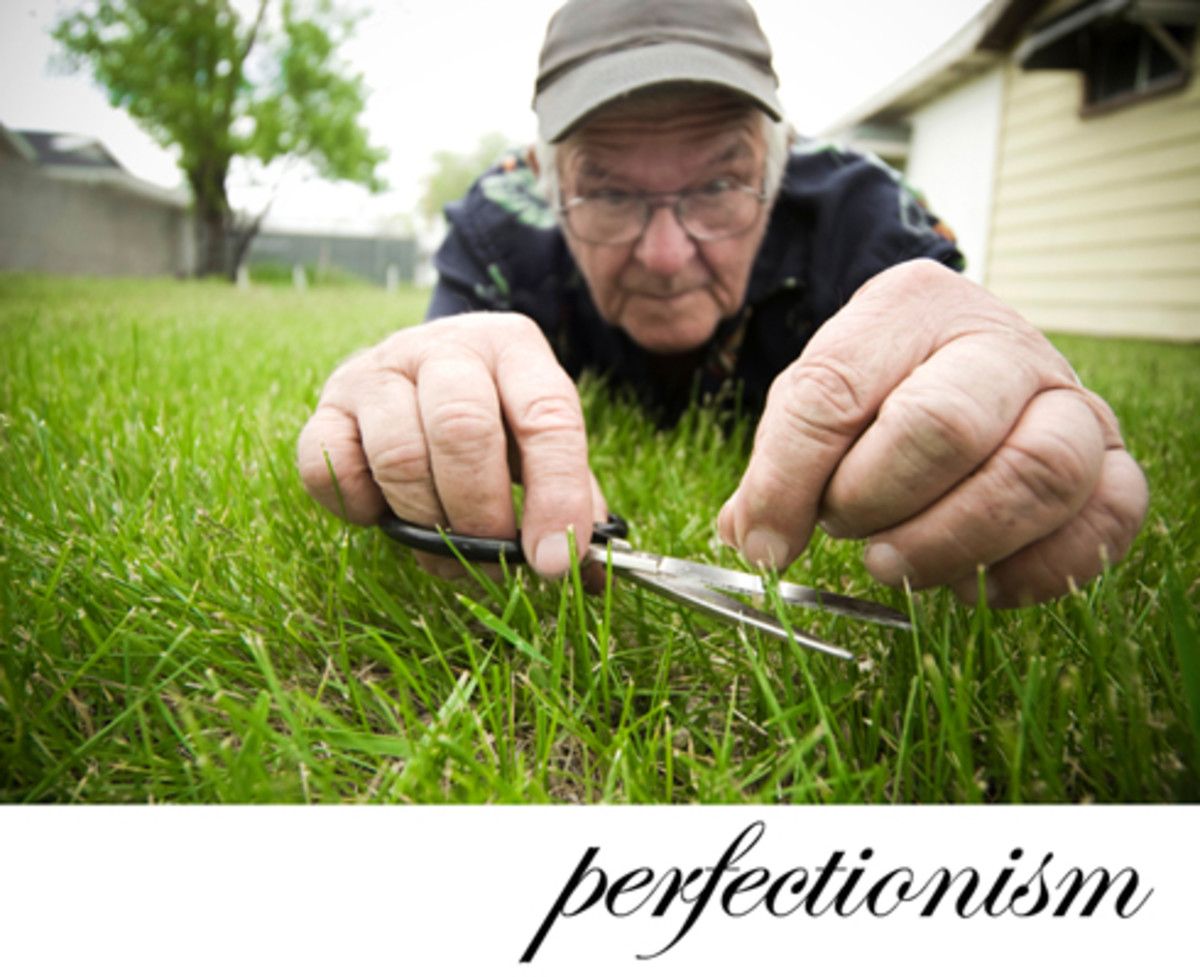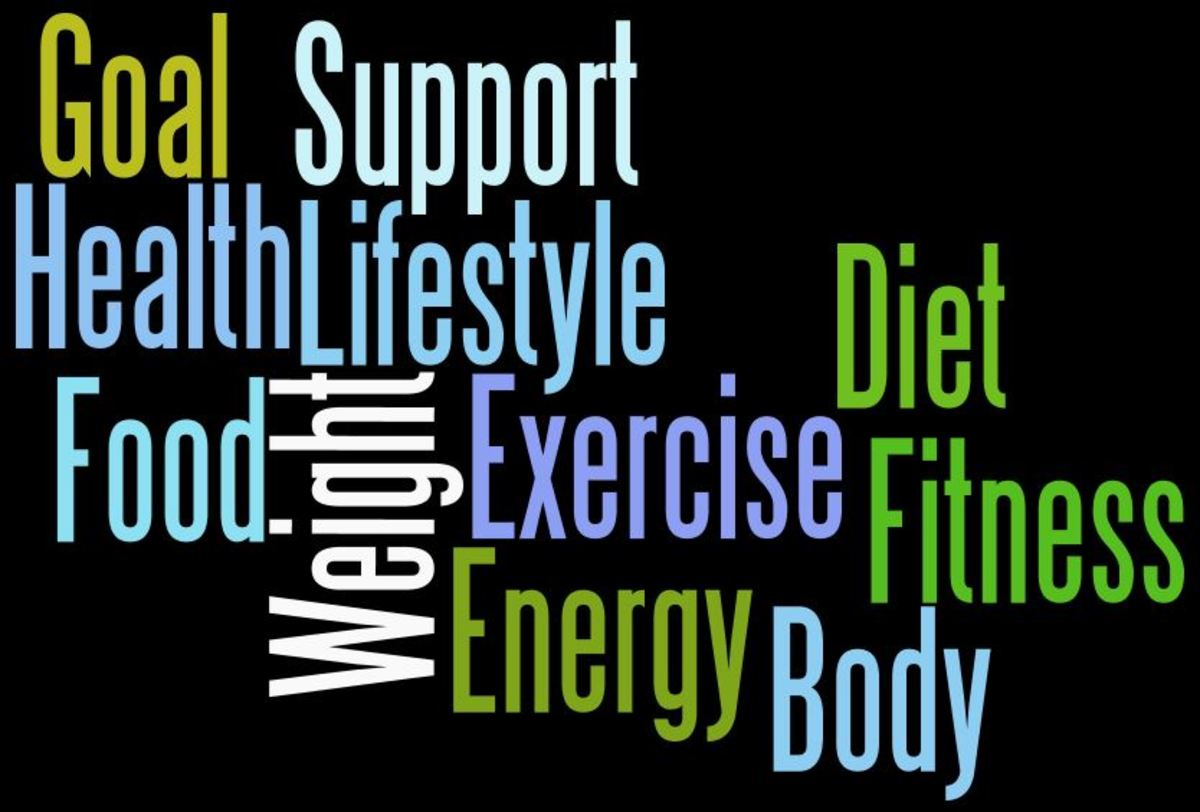- HubPages»
- Health»
- Diet & Weight Loss»
- Diet Advice & Tips
Perfectionism: The #1 Reason Diets Fail

The Tortoise and the Hare
A turtle and a rabbit head to the starting line for a race. The rabbit is quick and arrogant and the turtle is slow and unsure. The gun goes off and the rabbit sprints ahead leaving the turtle in the dust. Not to be discouraged, the turtle plods ahead, slowly but surely, pushing his hardest but clearly nowhere near as fast as the rabbit. The rabbit, realizing he is miles ahead of the turtle, decides he can take a nap on the course and gets side-tracked with a game of tennis. He allows the turtle to go by him knowing he can catch up in the end. But the rabbit was careless and he didn’t pay attention. He had too many starts and stops throughout the race and the turtle ends up beating him. It didn’t matter that the rabbit was faster in physical ability. What mattered was that the turtle was consistent and never gave up.
A simple childhood story based on one underlying premise – slow and steady wins the race. This can be applied to many things in life, but especially when learning how to live a healthy lifestyle. For the vast majority of us, when our pants get too tight or we see a picture of ourselves that isn't flattering, the last thing we want is a slow journey back to our old selves. We want to get there as quickly as possible and at whatever cost. We tell ourselves, “On Monday, I’m going on a diet.”
A Typical Diet
Overnight, we go from burgers, fries, and soda to salad, chicken, and water. For some, we don’t even like what we are eating (grapefruit, cabbage soup, detox drinks, etc) but we choke it down anyway and tell ourselves we have to eat it. We want FAST results and supposedly, this is how we get it. We hit the gym with a vengeance. By the end of the day, we are exhausted and hungry but proud of ourselves because we did it. We are a proud rabbit!
Tuesday rolls around and we can barely get out of bed. We are so sore from the gym yesterday that it is a struggle to do daily tasks. We didn’t mind the egg whites and oatmeal yesterday, but even that makes us want to gag today. We stay on track with our salad again today, but we hate it. We skip the gym and tell ourselves that we need a rest day because we are so sore and will resume tomorrow, but we immediately feel guilty. By the end of the day, we are exhausted, hungry, and miserable.
Wednesday rolls around. It is a co-workers birthday and there is cake in the breakroom. We haven’t cheated in 2 days and what is one bite of cake? We deserve it. We have been fighting the cravings for 2 days and have been perfect! We haven’t cheated at all! It’s just one bite. One bite turns into two and before we know it, we ate the whole piece. We are so mad at ourselves! Why can’t we just stay on track?! So we throw in the towel and have a second piece. Driving home from work, we skip the gym even though we aren’t as sore because we already blew it. The kids call and they both had a good report card so we agree to take them out for pizza and ice cream that night. And that puts the final nail in the coffin. Back to old habits.
Now granted, it may not happen in 3 days but you get the idea. Whether it is 3 days or 3 weeks, we gradually revert back to our old habits. This is why the gym is packed on January 1, but by the end of January it is the same old crowd. When we try to do too much too soon, is it any wonder our mind and body rebel? Would we force a friend or family member to make drastic changes and expect them to be successful? Do we expect anyone else to be perfect? So why do we expect it of ourselves?

The Problem with Perfection
The problem with perfection is that it isn’t realistic. It is like trying to hit a bullseye every time. We want to be the hare. We speed ahead on day 1 and we want fast results. Our willpower is strong these first few days to drink and eat things we don’t even like and to do exercises we don’t enjoy, but then we slowly burn out over the next few weeks. Within a short period of time, we are either back to where we started or even worse, have gained a few pounds.
We set ourselves up for failure when we adopt the “all-or-nothing mindset”.
Based on years of experience working with clients, the all-or-nothing mindset is one of the main reasons clients do not succeed at weight loss over the long run. We tell ourselves we either need to be perfect or we aren’t going to do it at all – we can’t see the middle ground. We view our actions as either good or bad and our reaction to events (such as a piece of cake), will swing us to one extreme or another. Over time, we develop an unhealthy relationship with food.
This also leads to “yo-yo dieting”. When we only see things in black or white, our weight tends to go up and down along with our thinking. Some people will do really well all week and may see a drop on the scale, but then the weekend rolls around and they now feel like they “deserve” to take the weekend off so they “un-do” all of the progress that they made during the week. This polarized way of thinking leads to no loss for the week or even worse, a gain. It doesn’t take long for frustration to set in and we throw in the towel.

Steps to Escape Perfectionism
By now we know that slow and steady wins the race and we need to view weight loss as a lifestyle change and not a diet, but we still have a problem. We have trained our mind for perfection. That all-or-nothing mindset is still there, in our subconscious mind, even though our conscious mind knows that it isn’t realistic. We STILL feel like we failed if we have a bite of cake and we STILL feel like we failed if we didn’t go to the gym after work. Perfectionism is still there, under the surface, fighting against our slow, yet successful, lifestyle change.
So what can we do if we find ourselves constantly falling victim to perfectionism and this all-or-nothing mindset?
- First, we need to examine our underlying belief. As many famous people have stated, “What we believe, we become”. Underlying beliefs create the rules by which we live. What has caused you to believe that your weight loss and nutrition have to be perfect in order to succeed at weight loss? How strongly do you believe this? What evidence do you have to support this belief?
- Second, we need to challenge this belief. Any time we find ourselves saying “I should…”, we need to pause. “Should statements” give us a glimpse into the rules we live by. Is whatever we are telling ourselves we “should” do reasonable? Or is it rigid, inflexible, and unrealistic? Whatever we are telling ourselves WE should do, would we reasonably tell someone else to do the same thing? What words are you using? Are you using words such as “must, have to, or need to”? If so, ask yourself “What would happen if you didn’t?” Then ask yourself “What would it MEAN if you didn’t?”
- Always remember “PROGRESS, NOT PERFECTION”. Slow and steady wins the race. Every single day, take a small step toward your goal. Drink more water – you don’t need to go from 0 to 8 glasses overnight. Just drink 1 more glass than you did yesterday. Take more steps – you don’t need to go from 2,000 to 10,000 steps overnight. Just increase your steps by 10% per week – in fact, that is recommended! You get the idea! Take small baby steps every day. When you are ready, incorporate one more habit and start small again. Small hinges swing big doors and these small daily actions really add up over time.
- Finally, and most important, BE PATIENT. It is going to take time. Focus on 1-2 pounds a week. Although this may not seem like a lot, you will be so surprised how quickly it adds up. And, as our childhood story reminds us, slow and steady wins the race. You will end up losing weight faster than those chasing the latest weight loss diet that is unrealistic and unsustainable.
In good health!
© 2018 Darleen Barnard






